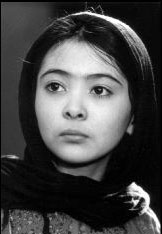BARAN
written and directed by Majid Majidi
runs Dec. 20-26 at Varsity
MADE WELL BEFORE Sept. 11 and the subsequent American routing of the Taliban, Baran uses a small, simple love story to dramatize the plight of some 1.5 million Afghan refugees living illegally in Iran. They’re a poor and miserable lot, forced to work without papers in the lowest of jobs, constantly in danger of arrest and deportation. But 17-year-old Iranian Lateef (Hossein Abedini) has no awareness of the immigrants’ situation. He’s not a global thinker; in fact, he’s not much of a thinker of any kind. He’s just an ingratiating flunky at a Tehran construction site, quick with both a smile and a fist.
He clenches that fist when a young Afghani, Rahmat (Zahra Bahrami), quiet and obedient but clearly too frail for heavy lifting, is hired at the site and Lateef is promptly booted out of his cushy kitchen job. Through his personal resentment, a political question is suddenly forced into Lateef’s thick head: Who are these damned Afghans, anyway—guests in our country taking away our jobs? It sounds all too sadly familiar.
However, Baran takes an unexpected turn when Lateef spies on Rahmat and discovers . . . she’s a girl! (Baran, meaning “rain,” is her real name.) As Lateef begins to reconsider his hostility (now turned into an awkward teen crush), Baran refuses to follow the precepts of a conventional Western love story. No stranger to sentimentalism or child actors, Majid Majidi (The Color of Paradise) generally reins in the schmaltz—if not the tears. Like his compatriot Mohsen Makhmalbaf (Kandahar), he has obvious respect and fascination for the stoic, dignified Afghans who seep over Iran’s eastern border.
LATEEF HAS HIS EYES opened when he attempts to find the immigrant camp where the girl lives. He’s never seen anything like the colorful burkas or closed, clannish society. The solemn Afghan codes don’t make any sense to him; a gift is stolen, and no one seems to care. Need is felt differently than by our little hustler and his bickering co-workers back at the site. (The Iranians live and labor communally in an infernal environment Majidi films like Hieronymus Bosch meets Sebasti㯠Salgado, but at least they’re better paid.) Witnessing the girl’s and her family’s hardship inevitably softens Lateef’s hard little heart.
Baran is an undeniably simple film, and its power lies in the most elemental details. The first thing one hears is the sound of bread being kneaded. When Lateef’s affections are finally reciprocated, it’s signaled by two lumps of sugar with his tea instead of the usual one. A dropped hair pin becomes a vital link between the pair. The film is subtitled, of course, but you could almost do without. Its two young leads have that transparent quality of young nonprofessional actors, a constant readiness to emotion (whether expressed or concealed).
In a movie where lovers never actually touch (yet whose fingers come tantalizingly close), Baran doesn’t tritely suggest that love can overcome all obstacles. It can’t; but it changes people, and that makes the film all the more universal and affecting.









